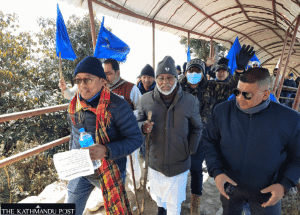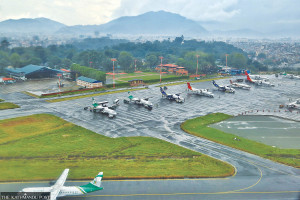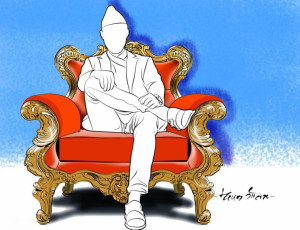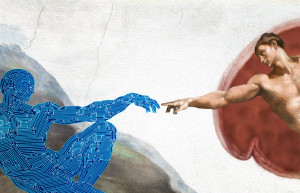Miscellaneous
A most wanted man
Going to see a film based—albeit loosely—on the life and times of someone as notorious as one Charles Sobhraj, currently biding his days in prison right here in Kathmandu, you’re bound to have some expectations up front. For one, considering how this part-Vietnamese, part-Indian serial murderer was best known as the “bikini killer” (among other flattering monikers), for the way he seduced and slaughtered a succession of young women in Thailand, India and Nepal across the 70s, one would expect a smattering of provocative scenes.
Preena Shrestha
Going to see a film based—albeit loosely—on the life and times of someone as notorious as one Charles Sobhraj, currently biding his days in prison right here in Kathmandu, you’re bound to have some expectations up front. For one, considering how this part-Vietnamese, part-Indian serial murderer was best known as the “bikini killer” (among other flattering monikers), for the way he seduced and slaughtered a succession of young women in Thailand, India and Nepal across the 70s, one would expect a smattering of provocative scenes. Second, you’d also expect to be shown the barebones of his MO, how he took on different identities, got into people’s heads, manipulated them into doing his bidding, and used that to execute seemingly impossible feats like the Tihar jailbreak of 1986. Third, and most importantly, you’d want some tunneling into that twisted, twisted mind—what made him the way he was? What was it he really wanted?Prawaal Raman’s Main Aur Charles certainly ticks the first box, but stumbles on the second and pretty much disregards the third. To be fair, the film does not claim to be a “biopic” as such and openly admits fictionalising, and Sobhraj’s last name isn’t mentioned even once. But precisely given the free reign that should’ve come with not being shackled to reality, and the inherently fascinating character study that this man comprises—not to mention the top-notch performers that have been brought on board—it’s truly perplexing just how mediocre the end result is. Main Aur Charles might be pretty as a picture, but the heavy slathering of style feels rather like an effort to distract from a weak script that is entirely too focused on telling, more than showing, us just how “charismatic” its subject is, and limiting itself, unfortunately, to a skin-deep examination of his personality and exploits.
The story opens in 1968, with Charles (Randeep Hooda) set to hotfoot it out of Thailand, leaving behind a trail of bodies, women he’s managed to ensnare, kill and promptly divest of possessions, particularly their passports. Leaping forward almost two decades, we find him in flight mode once again, this time from the maximum-security Tihar in Delhi, where he’s been serving a sentence that is only a few months short of ending. Next, he’s seen rolling around India with lover/associate Liz (Mandana Karimi) before landing on the beaches of Goa—teeming with hippies, who are, as far as the multi-accented and supremely confident Charles is concerned, easy prey. We watch as he ingratiates himself to people and earns their trust, before luring away his targets and murdering them in cold blood, with little visible remorse.
That killing spree is about to come to an end, though. Chief of Delhi Police, Amod Kanth (Adil Hussain), who has been tracing Charles’s movements since his jailbreak, is closing in on him, and it’s not long before the famous O’Coquero arrest is made. With Charles behind bars, Kanth begins to collect evidence against him, and in the process becomes acquainted with the other inhabitants of Charles’ world, such as Mira Sharma (Richa Chadha), a law student obsessed with the killer, and Richard Thomas (Alexx O’Nell), a UK national who was a fellow-in-mate of his, among others, all of whom testify to the power of his “hypnotic, brutal, intelligent and ruthless” nature. What also emerges, however, is the sinking suspicion that the escape and subsequent arrest might not have been what they appeared to, and that perhaps ol’ Charles is still pulling the strings.
One of Sobhraj’s most interesting traits would be the control he sought to exert over the construction of his own legend—the man was known to charge large sums for interviews with various media, for instance—something Main Aur Charles alludes to several times. There’s a scene where Charles is rifling through cutouts of newspaper articles about his own crimes; it tells us that he wasn’t just some money-hungry criminal, but someone with an almost superhuman sense of arrogance, who took great pride in his actions and notoriety, someone who knew what kind of image he was projecting, and who was very keen on shaping it himself. The film also illustrates the ineptitude of bureaucracy in this part of the world, such as through the antics of the Tihar jailor, played by an excellent Vipin Sharma.Sharma is just one among many class acts that dot the cast list in Main Aur Charles, including the ever-dependable Hussain, who is on point as the overworked police chief; Chadha, who portrays well a woman thoroughly consumed and misled by love; and of course, Mr Hooda, who puts up a very understated, controlled performance—altogether impressive, although the accent can veer into cartoonish territory every once in a while. Sad then that the characters these talented actors have been saddled with are so thinly drawn, propped up by a script that just doesn’t have much to say. This lack of an interesting point-of-view is a major flaw here. It would’ve been ideal to have had access to Charles’ psyche, his motivations, rationalisations—aside from some clichéd rumblings about a “dysfunctional childhood”, there’s little insight into the specificities that turned him into what he is. Main Aur Charles is also mum on how exactly he conducted his affairs and wormed his way into so many lives; most of this stuff has been crammed into montage, so that the content of his conversations, the effect that he had, is a mystery—aside from scenes of him canoodling with a variety of women (most of which feel gratuitous) or repeatedly being described by other characters as captivating, there is scant proof of it on screen. It’s also a fairly sanitised telling—the film never actually shows any murders being committed.
If not told from Charles’ perspective, we’d have been happy too with an impactful courtroom/police procedural, or heck, even a series of recollections sourced from acquaintances that could’ve helped pull together a portrait of the killer. Instead, Main Aur Charles is a mishmash of all these—presented in a snippet form that unnecessarily goes back and forth in time—resulting in a patchy, prolonged mess. I have to admit, though, it’s a pretty beautiful mess. The production design is stellar, successfully evoking the period in which the film is set, and Anuj Rakesh Dhawan’s super-stylish cinematography manipulates light and shadow to dramatic effect—although certain images, such as that of a silhouetted Charles smoking cigarettes, is overused. The music, intrusive and very 007-reminiscent, I could’ve done without.
The only thing we’re meant to take away from Main Aur Charles appears to be that Sobhraj was cool. Instead of demystifying him like you’d expect, it perpetuates his enigma, glossing over his crimes and glamorising him, more or less—as a swaggering, sexy anti-hero—and in that sense, feels like a film Sobhraj himself would have most wanted made.




 9.26°C Kathmandu
9.26°C Kathmandu










